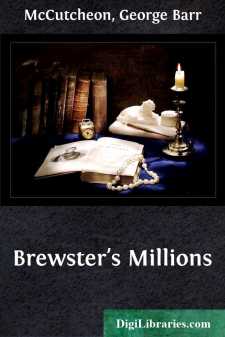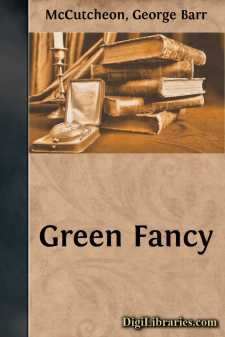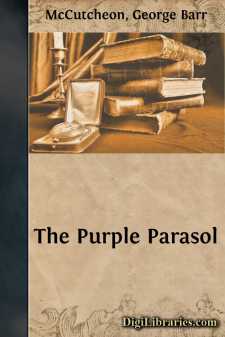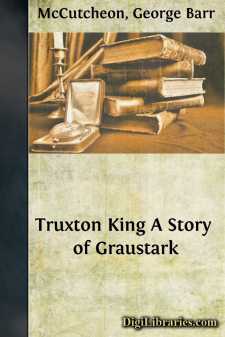Categories
- Antiques & Collectibles 13
- Architecture 36
- Art 48
- Bibles 22
- Biography & Autobiography 816
- Body, Mind & Spirit 145
- Business & Economics 28
- Children's Books 18
- Children's Fiction 14
- Computers 4
- Cooking 94
- Crafts & Hobbies 4
- Drama 346
- Education 58
- Family & Relationships 59
- Fiction 11834
- Foreign Language Study 3
- Games 19
- Gardening 17
- Health & Fitness 34
- History 1378
- House & Home 1
- Humor 147
- Juvenile Fiction 1873
- Juvenile Nonfiction 202
- Language Arts & Disciplines 89
- Law 16
- Literary Collections 686
- Literary Criticism 179
- Mathematics 13
- Medical 41
- Music 40
- Nature 179
- Non-Classifiable 1768
- Performing Arts 7
- Periodicals 1453
- Philosophy 66
- Photography 2
- Poetry 897
- Political Science 203
- Psychology 45
- Reference 154
- Religion 516
- Science 126
- Self-Help 86
- Social Science 82
- Sports & Recreation 34
- Study Aids 3
- Technology & Engineering 59
- Transportation 23
- Travel 463
- True Crime 29
Our website is made possible by displaying online advertisements to our visitors.
Please consider supporting us by disabling your ad blocker.
Nedra
Categories:
Description:
Excerpt
CHAPTER I
THE INSPIRATION
A tall young man sped swiftly up the wide stone steps leading to the doorway of a mansion in one of Chicago's most fashionable avenues. After pushing the button sharply he jerked out his watch and guessed at the time by the dull red light from the panel in the door. Then he hastily brushed from the sleeve of his coat the telltale billiard chalk, whose presence reminded him that a general survey might be a wise precaution. He was rubbing a white streak from his trousers' leg when the door flew open and the butler admitted him to the hallway. This personage relieved him of his hat, coat and stick and announced:
"Miss Vernon is w'itin' for you, sir."
"How the devil did I happen to let eight o'clock strike nine before I knew it?" muttered the visitor. He was at the drawing-room door as he concluded this self-addressed reproach, extending both hands toward the young woman who came from the fireplace to meet him.
"How late you are, Hugh," she cried, half resentfully. He bent forward and kissed her.
"Late? It isn't late, dear. I said I couldn't come before eight, didn't I? Well, it's eight, isn't it?"
"It's nearly seventy minutes past eight, sir. I've been waiting and watching the hands on the clock for just sixty minutes."
"I never saw such a perfect crank about keeping time as that grandfatherly clock of yours. It hasn't skipped a second in two centuries, I'll swear. You see, I was playing off the odd game with Tom Ditton."
He dropped lazily into a big arm-chair, drove his hands into his pockets and stretched out his long legs toward the grate.
"You might have come at eight, Hugh, on this night if no other. You knew what important things we have to consider." Miss Vernon, tall and graceful, stood before him with her back to the fire. She was exceedingly pretty, this girl whom Hugh had kissed.
"I'm awfully sorry, Grace; but you know how it is when a fellow's in a close, hard game--especially with a blow-hard like Tom Ditton."
"If I forgive you again, I'm afraid you'll prove a begging husband."
"Never! Deliver me from a begging husband. I shall assert all kinds of authority in my house, Miss Vernon, and you'll be in a constant state of beggary yourself. You'll have to beg me to get up in the morning, beg me to come home early every night, beg me to swear off divers things, beg me to go to church, beg me to buy new hats for you, beg me to eat things you cook, beg me to--"
"I suppose I shall even have to beg you to kiss me," she cried.
"Not at all. That is one thing I'll beg of you. Lean over here, do, and kiss me, please," he said invitingly.
She placed a hand on each arm of the chair and leaned forward obediently. Their lips met in a smile.
"You lazy thing!" she exclaimed, her face slightly flushed. Then she seated herself on one of the big arms, resting her elbow on the back of the chair beside his head. For a few minutes both were silent, gazing at the bright coals before them, the smile remaining upon their lips. Hugh had been squinting between the toes of his shoes at a lonely black chunk in the grate for some time before he finally spoke reflectively.
"I can't afford to be lazy much longer, can I? Married men never have a minute's rest, you know."
"We're not married."
"No; but we're going to be, let me remind you. We are to--to announce it to-morrow night, are we not? It has come to that, you see." He did not look very cheerful, nor did she.
"Yes, I suppose it's imperative. That is why aunt is giving her reception,--just to tell everybody we're engaged."
"And then everybody will shake hands with us and say, 'Congratulations,' 'How lovely,' 'So surprised,' 'Howdy do,' and so forth, and we say 'Thanks,' 'How good of you,' and more so forth. It will be great!" Another silence and inspection of the fire, he taking an altered aim at the black chunk. "Say!" he exclaimed, "wouldn't it do just as well if I didn't put in an appearance to-morrow night? Your aunt can announce the thing, as agreed, and you can tell 'em that I have a sick uncle in Indianapolis, or have had my leg broken, or something like that. Now, there's a good girl."
"No," she said. "We fell in love because we couldn't help it, and this is the penalty--an announcement party."
"I'll never quite understand why you fell," said he dubiously.
"I think we were both too young to know," she responded. "It seems to me that we've been in love ever since we were babies."
"And it never hurts a baby to fall, you know," said he, with fine logic. "Of course it may cripple 'em permanently, but they don't know how it happened."
For some moments she caressed his brown hair in silence, the smile lingering on her lips after it had left her eyes. His eyes closed dreamily under the gentle touch of her fingers. "But, dear," she said, "this is no joking matter. We have been engaged for nearly three months and not a soul knows of it. We'll have to tell them how we managed to keep it a secret for so long, and why,--and all that. And then everybody will want to know who the bridesmaids are to be."
"I believe I'd like to know that myself, as long as I'm to walk out of the church ahead of them--provided I don't get lost."
"Helen Grossman is to be the maid of honor. I believe I'll ask Jean Robertson, Eloise Grant, Harriet Noble, Mayme McMurtrie, Ellen Boyland--"
"Are we to have no guests?"
"--and Effa Samuels. Won't it be a pretty set of girls?"
"Couldn't be prettier."
"And now, who is to be your best man?"
"Well, I thought I'd have Tom Ditton," a trifle confusedly.
"Tom Ditton! I thought you did not approve of him," she cried. "You certainly did not when he came to see me so frequently."
"Oh, he isn't such a bad sort, after all. I'd just as soon have him as any one. Besides, he's an expert at it. If it was left to me, I'd much rather sit behind the pulpit until it is all over. People won't miss me while they've got you to look at."
"We could be married so quietly and prettily if it were not for Aunt Elizabeth," pouted Miss Vernon. "She insists on the church wedding, the teas and receptions and--"
"All that sort of rot," he interjected, as if fearing she might not express herself adequately. "I like your Aunt Elizabeth, Grace, but she's--she's an awful--"
"Don't say it, Hugh. I know what you mean, but she can't help it. She lives for society. She's perfectly crazy on the subject. Aunt Elizabeth made up her mind we should be married in church. I have talked myself black in the face--for your sake, dear--but it was like trying to convert a stone wall. She is determined. You know what that means."
"No wonder she's a widow," growled Hugh Ridgeway sourly. "Your father served you a mighty mean trick, dear, when he gave you over to her training. She might have spoiled you beyond redemption."
"Poor father! He loathed display, too. I've no doubt that is why he left me in her care until I reached the age of discretion. She was not always like this. Father's money has wrought the change. Aunty was as poor as a church mouse until father's death put her at the head of my household--it was mine, Hugh, even if I was only six years old. You know we could live pretty well on forty thousand a year."
"You'll have a million or so when you're twenty-three, dear, and I'll venture to say your aunt has saved something in all these years."
"Oh, she had at least two hundred thousand dollars by the will. It has cost her nothing to live all these years as my guardian and trustee. We just had to do something with my income, you know."
"I don't see why you should let this fortune stand in the way, Grace," growled he. "Haven't I enough of my own to take its place?" Hugh Ridgeway had a million in his own right and he could well afford to be unreasonable. "The will says you are not to have your father's money until you are twenty-three years old. He evidently thought that was a discreet age. You are not to marry before you have reached that age. I've been waiting for two years, Grace, and there still remains two months--"
"One month and twenty-eight days, Hugh," she corrected.
"And in the meantime we have to stay here and face all this ante-nuptial wretchedness. It's sickening, Grace. We hate it, both of us. Don't we? I knew you'd nod your head. That's why I can't help loving you. You've got so much real good hard sense about things. If your confounded Aunt Lizzie--Elizabeth, I should say--would let us get married as we want--Hang it all, Grace, it's our affair anyhow, isn't it? Why should we permit her to dictate? It's not her wedding. She's been married twice; why can't she let well enough alone?"
"She loves me, Hugh, after all," gently.
"Well, so do I. I'm willing--not perfectly willing, of course--but reasonably so, that we should wait until the twenty-third of May, but I don't see why we should have the whole town waiting with us. Why don't you assert yourself, dear, before it is too late? Once she pulls off this announcement party, it's all off with peace of mind and contentment so far as we are concerned. Of course, she'll be enjoying it, but what of us? Are you afraid of her?"
"Don't bully me, Hugh," she pleaded. He was contrite at once and properly so. "She has lived for this time in her life. She never has been crossed. I can't--honestly I can't go to her now and--quarrel. That's what it would mean--a quarrel. She would never give in."
"Well, then, all hope is lost," he lamented. For some minutes Miss Vernon gave no response, sitting upon the arm of the chair, a perplexed pucker on her brow and a thoughtful swing to her slippered foot.
These young people had known each other since earliest childhood. They had played together with the same neighborly toys and they had grown up together with the same neighborly ideals. Both had whirled in the social swing until the sensation palled. The most exclusive set in town regarded them as among its most popular members. It was quite natural that their wedding should be the most brilliant and fashionable of the year. Their position in society demanded the sacrifice, and her aunt saw the urgent need for making it, notwithstanding the opposition of the young people themselves.
Ridgeway was a couple of years older than his affianced bride, and she was just short of twenty-three. She, an orphan since early childhood, lived with her widowed aunt--the social gourmand, to quote Hugh Ridgeway--and he made his home next door with his sister and her husband. The two brown stone houses were almost within arm's reach of each other. She had painted dainty water colors for his rooms and he had thrown thousands of roses from his windows into her boudoir. It had been a merry courtship--the courtship of modern cavalier and lady fair. Ridgeway's parents died when he was in college, and he was left to enlarge or despise a fortune that rated him as a millionaire and the best catch in town--at that time.
He was a member of the Board of Trade, but he was scarcely an operator in the strictest sense of the word. If he won he whistled, if he lost he whistled. It mattered little. Good looking, well dressed, generous to a fault, tainted but moderately with scandal, he was a man whom everybody admired, but who admired few in return--a perfectly natural and proper condition if one but stops to consider.
Miss Vernon was beautiful--of that there was no question. Tall, fair, brown-eyed and full of the life that loves, she ruled the hearts of many and--kept her hand for one. Her short, gay life had been one of luxury and ease. She had known few of its cares; its vicissitudes belonged to the charities she supported with loyal persistency. Her aunt, society mad, was her only mentor, her only guide. A path had been made for her, and she saw no other alternative than to travel it as designed. A careless, buoyant heart, full of love and tenderness and warmth, allowed itself to be tossed by all of the emotions, but always sank back safely into the path of duty and rectitude. It was not of sufficient moment to combat her aunt's stubborn authority; it was so much easier to do her own sweet will without conflict and then smile down on the consequences.
Possibly it is true that she did not love her aunt. If that were the case, she kept it well to herself. She could not have been blamed, however, for disliking the dictator. Hugh Ridgeway was more or less right when he said that no one in town admired the old lady. She was hard, devoid of humor, wrapped up in her own selfishness; shrewd, capable and resourceful. Her brother, on his deathbed, signed the instrument which made this arrogant relative the arbiter of the girl's future for many years to come. She was appointed guardian and trustee until legal age was attained, and as such she was absolute in her power. The large fortune was to be held in trust by this aunt, Mrs. Torrence, and the Hon. Stanley Goodland, until Grace was twenty-three years of age. The income from the investments in bonds, real estate and high-class securities was to be handled by Mrs. Torrence as she saw fit in the effort to better the young woman's mental and social estate. To do her justice, she performed the duties well and honorably, even though her measure of human nature was not full to overflowing. Grace, with a mind and heart of her own, undertook to cultivate human nature from her own point of view after years of tolerance, and she succeeded so well that her aunt was none the wiser.
On one point, however, the paragon was so firm and unassailable that Grace was obliged to confess failure to her lover, after weeks and weeks of splendid argument. Her aunt forced an issue. The marriage of her niece was to be brilliant to the verge of confusion and the ante-nuptial season was to be one which the city should not forget while its promoter lived to enjoy the emoluments. She knew she was making her niece unhappy, but she argued that her niece was too deeply in love to appreciate the value of opportunity. Besides, on her wedding day, Grace Vernon would be twenty-three years of age, mistress of herself, her fortune, and her husband's home. That day would end the reign of Elizabeth Torrence. The arbiter was determined that the reign should end in a blaze of glory.
As for Grace and Hugh, they were to be married. That had been decided upon by destiny years and years ago and ratified after Hugh had reached an age of discretion. He said that twenty-five was the year of discretion, if not of reason.
After the first transports, each began to consider the importance of the union, not only to themselves, but to the world at large. In their reflective moments they realized that the marriage would be the most wonderful event in the whole history of the homes of Vernon and Ridgeway. Never before had a Vernon married a Ridgeway, and--vice versa. Therefore, the whole world would visit upon such a union its undivided attention. That is the view all engaged people take of marriage.
Miss Vernon had employed six weeks of argument in convincing Mr. Ridgeway that a church wedding was imperative, although she admittedly preferred the simpler form, where the minister conducts the ceremony in the presence of two witnesses and a ring. Society demanded the exhibition. Mr. Ridgeway warned her that he could not survive the ordeal and would leave her a widow at the altar.
Their difficulties had at last resolved themselves into that condition which confronts every engaged pair; and they, like others, were preparing to inform the world of their intentions.
"There's no way out of it, Hugh," she finally sighed, "unless we decide to give up the hope of getting married. That would break my heart," she said, with her rarest smile.
"This would be the most delightful period of my life if it were not for that distressing announcement, the two months of purgatory between now and the day of the wedding, and then the--calamity. I know it will be a calamity. I can't get through it alive."
"You poor boy! I wish we could have a quiet little Wedding. It would be so sweet, wouldn't it, dear?" she said plaintively, wistfully.
"But instead we are to have a hippodrome. Bah!" he concluded spitefully. "I wouldn't talk this way, dear, if I didn't know that you feel just as I do about it. But," and here he arose wearily, "this sort of talk isn't helping matters. It's a case of church against choice. To-morrow night we'll tell 'em, and then we'll quit sleeping for two months."
"There's only one way out of it that I can see. We might elope," she said laughingly, standing before him and rubbing the wrinkles from between his eyes.
Gradually his gray eyes fell until they looked into hers of brown. A mutual thought sprang into the eyes of each like a flash of light plainly comprehensive. He seized her hands, still staring into her eyes, and an exultant hope leaped to his lips, bursting forth in these words:
"By George!"
"Oh, we couldn't," she whispered, divining his thought.
"We can! By all that's good and holy, we'll elope!" Hugh's voice was quivering with enthusiasm, his face a picture of relief.
"Honestly, do you--do you think we could?" The girl's eyes were wide with excitement, her cheeks burning.
"Can we? What's to prevent? Will you do it, Grace--will you?" cried he.
"What will everybody say?"
"Let 'em say. What do we care? Won't it be the greatest lark that ever happened? You're the smartest woman in the world for thinking of it."
"But I wasn't in earnest," she protested.
"But you are now--we both are. Listen: We can slip away and get married and nobody will be the wiser and then, when we come back, we can laugh at everybody."
"And get our pictures in the papers."
"Then, by Hokey! we won't come back for five years! How's that? That'll fool 'em, won't it? Say, this is great! Life is worth living after all. You'll go, won't you, Grace?"
"I'd go to the end of the world with you, Hugh, but--"
"Oh, say you'll go! Now, listen to this," he urged, leaping to his feet. "We're going to be married anyway. We love one another. You can't be married until the twenty-third of May. Lots of people elope--even in the best of families. Why shouldn't we? If we stay here, we'll have to face all the sort of thing we don't like--"
"Yes, but it won't take us two months to elope," she protested. "Sh! Don't speak above a whisper. Aunt Elizabeth has wonderful ears."
"By Jove, darling, I believe you're two-thirds willing to try it on," he whispered.
"We must be sensible, Hugh. You see, I can't be married until the twenty-third of May. Well, aunt is determined to announce the engagement to-morrow night. Don't you see we couldn't elope until the twenty-second at best, so we're doomed for two months of it in spite of ourselves. If we get through the two months why should we elope at all? The worst will be over?"
"We can't escape the announcement party, I'll admit, but we can get away from all the rest. My scheme is to elope to a place that will require seven or eight weeks' time to reach. That's a fine way to kill time, don't you see?"
"My goodness!"
"Why not? We can do as we like, can't we? And what a bully lark! I'd be a downright cad to ask you to do this, Grace, if I didn't love you as I do. We can use assumed names and all that!"
"Oh, dear, dear, doesn't it sound lovely?" she cried, her cheeks red with excitement.
"The twenty-third of May isn't so far off after all, and it won't be half so far if we're doing so












